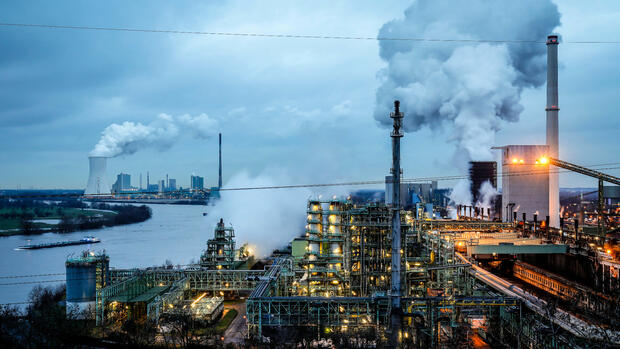Corporations with high energy consumption such as Thyssen-Krupp, BASF and Covestro had announced early on that they would not agree to the ban on bonus and dividend payments, which is inevitably associated with a subsidy.
(Photo: imago images/Rupert Oberhäuser)
Berlin, Dusseldorf A few weeks after it was launched, the government gas and electricity price brake has met with little response from German companies. According to research by the Handelsblatt, only a few energy-intensive companies use the subsidy or only apply for the minimum subsidy. The reason: companies complain about too much bureaucracy and restrictions.
“We don’t use the opportunity because the implementation is a disaster. The criteria are completely unrealistic and applying is endlessly complicated,” says Hendrik Follmann, Managing Director of Follmann Chemie in Minden. He doesn’t know of any company in all of East Westphalia that is currently using the state brake on energy prices.
Three hundred kilometers further south in the Franconian town of Tettau, the glass manufacturer Heinz-Glas has applied for a subsidy, but is still disappointed. “The funding only covers a small fraction of our actual additional costs,” the company complains. With the program, the government wants to prevent “at most insolvencies”. “It is definitely not an aid that restores our competitiveness.”
Read on now
Get access to this and every other article in the
Web and in our app free of charge for 4 weeks.
Further
Read on now
Get access to this and every other article in the
web and in our app.
Further
